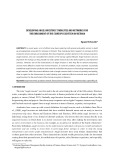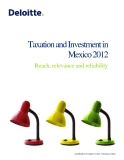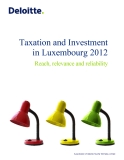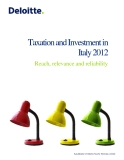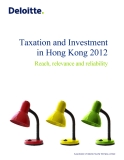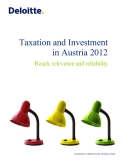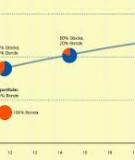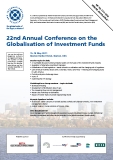
Investment angels
-
In recent years, a lot of efforts have been made by both private and public sectors to build up an appropriate ecosystem for startups in Vietnam. They mainly give direct supports to startups and the incubators where startups are incubated. Most have forgotten another element in the startup ecosystem, angel investors, who are considered the starters of the startup capital lifecycle. Angel investors are very important for startups as they provide not only capital resources but also skills, expertise, and important contacts.
 7p
7p  vihassoplattner
vihassoplattner
 07-01-2022
07-01-2022
 16
16
 0
0
 Download
Download
-
Trên cơ sở phân tích các nhân tố thu hút đầu tư thiên thần vào startup, bài viết đề xuất các hàm ý nhằm xây dựng cơ chế phát triển hoạt động đầu tư thiên thần trong nước và thu hút đầu tư thiên thần nước ngoài vào Việt Nam.
 8p
8p  larachdumlanat129
larachdumlanat129
 14-01-2021
14-01-2021
 24
24
 3
3
 Download
Download
-
The article provided some factors influencing angel’s investment decisions. Using secondary data from official sources, the author analyzed the impact of factors based on two perspectives: the perspective from startup and the perspective from the government and the business environment.
 8p
8p  tamynhan6
tamynhan6
 14-09-2020
14-09-2020
 21
21
 1
1
 Download
Download
-
This study ‘‘The impact of education, experience, and venture capital awareness on coownership of small enterprises in Nigeria’’ aims at ascertaining whether experience, education and venture capital awareness influence the willingness of small businesses owners to share control power of their businesses. To achieve this objective, one hundred and fifty-five small enterprises were surveyed across Edo state.
 10p
10p  covid19
covid19
 19-04-2020
19-04-2020
 21
21
 1
1
 Download
Download
-
The information in this working paper does not constitute the provision of investment, legal, or tax advice. Any views expressed reflect the current views of the author(s), which do not necessarily correspond to the opinions of the European Investment Fund or the European Investment Bank Group. Opinions expressed may change without notice. Opinions expressed may differ from views set out in other documents, including other research published by the EIF. The information in this working paper is provided for informational purposes only and without any obligation.
 0p
0p  hongphuocidol
hongphuocidol
 04-04-2013
04-04-2013
 51
51
 7
7
 Download
Download
-
Typically, Business Angels take minority stakes; according to the study, only 5% of the BA financed companies have majority participations of Business Angels. Slightly more than 50% received financing at or before creation. Almost one third received support 3 years after creation - this means that Business Angels do not only finance companies in the seed and start-up, but also in the expansion phase. Table 2 below shows the attributes of companies with Business Angel or/and VC support.
 0p
0p  hongphuocidol
hongphuocidol
 04-04-2013
04-04-2013
 82
82
 7
7
 Download
Download
-
The total annual amount invested by Business Angels in Germany is estimated to be between EUR 100m and up to EUR 300m. 7 The amounts invested per individual investee company vary significantly. Often, amounts between EUR 50k and EUR 100k are mentioned as average, however, during the financial crisis these amounts went down significantly (see also text box 2 on the Business Angel Panel below).
 20p
20p  hongphuocidol
hongphuocidol
 04-04-2013
04-04-2013
 61
61
 8
8
 Download
Download
-
With regard to the destination of the invested funds in terms of sector allocation, we are restricted to use data obtained about business angel networks (see EBAN, 2010c). While it is generally difficult to apply insights gained from networks to the overall BA market, it might be fair to assume such sector data to be representative for the market in general.
 0p
0p  hongphuocidol
hongphuocidol
 04-04-2013
04-04-2013
 50
50
 8
8
 Download
Download
-
According to EBAN (EBAN, 2010c), there are almost 400 Business Angel networks in Europe, with around 14.8k investors operating in groups; the corresponding figure for the US is 340, with around 6.5k investors (operating in groups). The median number of investors in a typical European business angel network is 79 (EBAN, 2010c). 5 The number of networks in Europe has increased rapidly over the past decade, from around less than 100; at the same time the number of venture capital funds has fallen from around 1,600 to 700; this could be taken as a support for the hypothesis that...
 0p
0p  hongphuocidol
hongphuocidol
 04-04-2013
04-04-2013
 51
51
 9
9
 Download
Download
-
The (estimated) number of angel investors active both within networks and on an independent basis (individual activity or in syndicates) is estimated to be around 75k in Europe (EBAN, 2010c); the corresponding figure for the US is 259k. Often Business Angels in the US are “Serial Angels” - this means they invest regularly. In terms of overall investment, the amount invested by angels annually is EUR 3 to 5bn in the EU (invested into approx. 2800 companies (2009 data)), compared to USD 20.1bn (approx. EUR 14.9bn) in the US (invested into 61,900 companies (Sohl, 2011)).
 0p
0p  hongphuocidol
hongphuocidol
 04-04-2013
04-04-2013
 61
61
 7
7
 Download
Download
-
The data included below must be interpreted with caution, indeed those providing the data themselves advise caution in using it. The European data comes from the European Business Angel Network (EBAN), and the US data comes from the Angel Capital Association or the Centre for Venture Research, University of New Hampshire. EBAN note that their numbers only include activity that takes place within Business Angel networks, and as such by no means represent the full extent of Business Angel activity existing in Europe.
 0p
0p  hongphuocidol
hongphuocidol
 04-04-2013
04-04-2013
 46
46
 9
9
 Download
Download
-
Identification is further complicated by the fact that some individuals who identify themselves as ‘virgin’ angels, i.e. looking to make their first investment, may never do so. Furthermore, some individuals may have acted as angels but are no longer actively looking to invest; counting either of these categories as active angels risks exaggerating the true number.
 0p
0p  hongphuocidol
hongphuocidol
 04-04-2013
04-04-2013
 48
48
 4
4
 Download
Download
-
Regarding identification, we need to differentiate between Business Angels and the wider informal investment market. Informal investment describes non-institutional risk capital investments in unquoted businesses, including Business Angel investments, investments by family offices, and also the category of investments made by family and friends. The latter two categories are often not commercially oriented. However, matters are complicated by the definition of ‘friends’ – social, as well as business networks are sources used to identify potential investment opportunities. ...
 5p
5p  hongphuocidol
hongphuocidol
 04-04-2013
04-04-2013
 59
59
 7
7
 Download
Download
-
The inclusion of Business Angels in the range of ‘informal’ (as opposed to ‘institutional’) investors provides us an indication that there are potential difficulties in measuring the size of the Business Angel community. Mason and Harrison identify two main problems, identification and definition. Regarding the former, in his seminal work on Business Angels, William Wetzel (1983) notes that the total population of Business Angels is unknown and probably unknowable on account of their invisibility, desire for anonymity, and the undocumented nature of their investing.
 15p
15p  hongphuocidol
hongphuocidol
 04-04-2013
04-04-2013
 67
67
 8
8
 Download
Download
-
That only certain angels and entrepreneurs operate through networks has been confirmed in an older survey of the European Commission (2002), which revealed that only around 19% of contacted angels were registered with networks, and about 2% of new entrepreneurs contacted a network. Nevertheless, an update of this survey would most likely result in a higher degree of organization today. An important element of Business Angels’ activities is often, in addition to financial support, the provision of non-financial benefits, e.g.
 5p
5p  hongphuocidol
hongphuocidol
 04-04-2013
04-04-2013
 51
51
 7
7
 Download
Download
-
Business Angels increasingly co-invest with other angels and with early stage funds to fill the early- stage equity gap. Business Angel networks (BANs) facilitate the matching of investment demand and supply; they aim to organize and link angels, as well as to attract prospective investment targets (investees) to angels and match both parties for business contacts. Such networks come in a number of forms; some are more like investment clubs, while others are set up on a regional or national basis. Some networks concentrate on a certain industry or sector.
 24p
24p  hongphuocidol
hongphuocidol
 04-04-2013
04-04-2013
 50
50
 8
8
 Download
Download
-
One key distinction is that business angels invest their own funds, unlike VC funds, who primarily invest funds committed by others (e.g. institutional investors). For this reason they typically invest in companies with which they can maintain close contacts (OECD, 2006). Furthermore, typically companies that receive BA financing are smaller (i.e. in terms of turnover – see also table 1 later in this text) than VC backed companies. Most of the companies that receive BA financing, do not receive VC financing at the same time.
 10p
10p  hongphuocidol
hongphuocidol
 04-04-2013
04-04-2013
 89
89
 10
10
 Download
Download
-
They fill a gap: as BAs do not face the transaction costs faced by venture capitalists, they are able to conduct smaller investments. Studies show that, while Business Angels invest across the full range of company stages, they are the main source of funding when the deal size is under USD 1m, and they participate in a higher number of rounds of seed and start up capital than venture capital funds. Mason and Harrison note that the informal venture capital market is the largest external source of early stage risk capital, dwarfing the institutional venture capital market...
 17p
17p  hongphuocidol
hongphuocidol
 04-04-2013
04-04-2013
 46
46
 7
7
 Download
Download
-
“A business angel is an individual investor (qualified as defined by some national regulations) that invests directly (or through their personal holding) their own money predominantly in seed or start- up companies with no family relationships. Business angels make their own (final) investment decisions and are financially independent, i.e. a possible total loss of their business angel investments will not significantly change the economic situation of their assets.
 12p
12p  hongphuocidol
hongphuocidol
 04-04-2013
04-04-2013
 74
74
 9
9
 Download
Download
-
Business Angels (BAs) are an important financing source for SMEs, and seed and start-up companies in particular. BAs are even more important in countries and regions lacking an institutionalised VC infrastructure, often being the only major source of equity finance for young innovative SMEs. An important additional element of their activity is often the provision of non- financial benefits like mentoring/advice, contacts etc.
 12p
12p  hongphuocidol
hongphuocidol
 04-04-2013
04-04-2013
 55
55
 7
7
 Download
Download
CHỦ ĐỀ BẠN MUỐN TÌM








